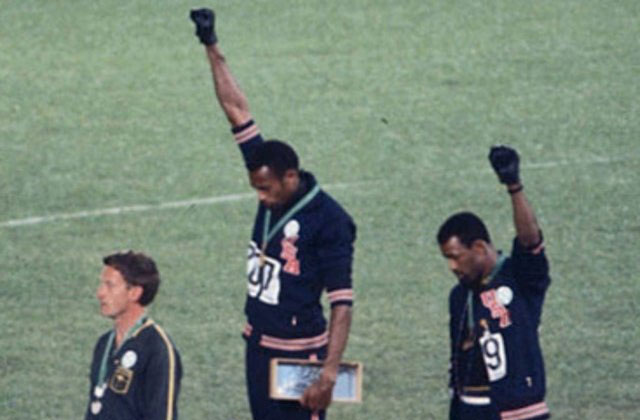At the 1968 Olympic Games in Mexico City, gold and bronze medalists Tommie Smith and John Carlos made history when they each stood on the the victory dais and raised a black gloved fist in solidarity with the Black Power movement. Fifty-two years later, the National Olympic Committees, the International Sports Federations and the International Olympic Committee (IOC) are taking their own stand against protests for the 2020 games in Tokyo, CNN reported on Friday (January 10).
In the introduction to the IOC’s “Rule 50 Guidelines,” the committee wrote, “We believe that the example we set by competing with the world’s best while living in harmony in the Olympic Village is a uniquely positive message to send to an increasingly divided world. This is why it is important, on both a personal and a global level, that we keep the venues, the Olympic Village and the podium neutral and free from any form of political, religious or ethnic demonstrations.” These guidelines don’t just extend to the athletes but to anyone accredited to be at the games, such as trainers, coaches and officials.
But what constitutes political, religious or ethnic demonstrations? The guidelines list “displaying any political messaging, including signs or armbands, gestures of a political nature, like a hand gesture or kneeling, and refusal to follow the Ceremonies protocol.” Interestingly, both gestures noted were displayed last August at the Pan American Games in Peru when U.S. gold medalist hammer thrower Gwen Berry raised her fist and American gold medalist fencer Race Imboden took a knee during the playing of the national anthem.
“We sacrifice for something for four years, and we’re at our highest moment,” Berry told Yahoo Sports in a story published on Thursday (January 9) about the new guidelines. “We should be able to say whatever we want to say, do whatever we have to do—for our brand, our culture, the people who support us, the countries that support us, [everything]. We shouldn’t be silenced. It definitely is a form of control.”
The guidelines state that athletes can express their views during press conferences and interviews, at team meetings and via the media. If an athlete breaks the rules, the IOC will determine consequences on a case-by-case basis.
To view the new guidelines, click here.
